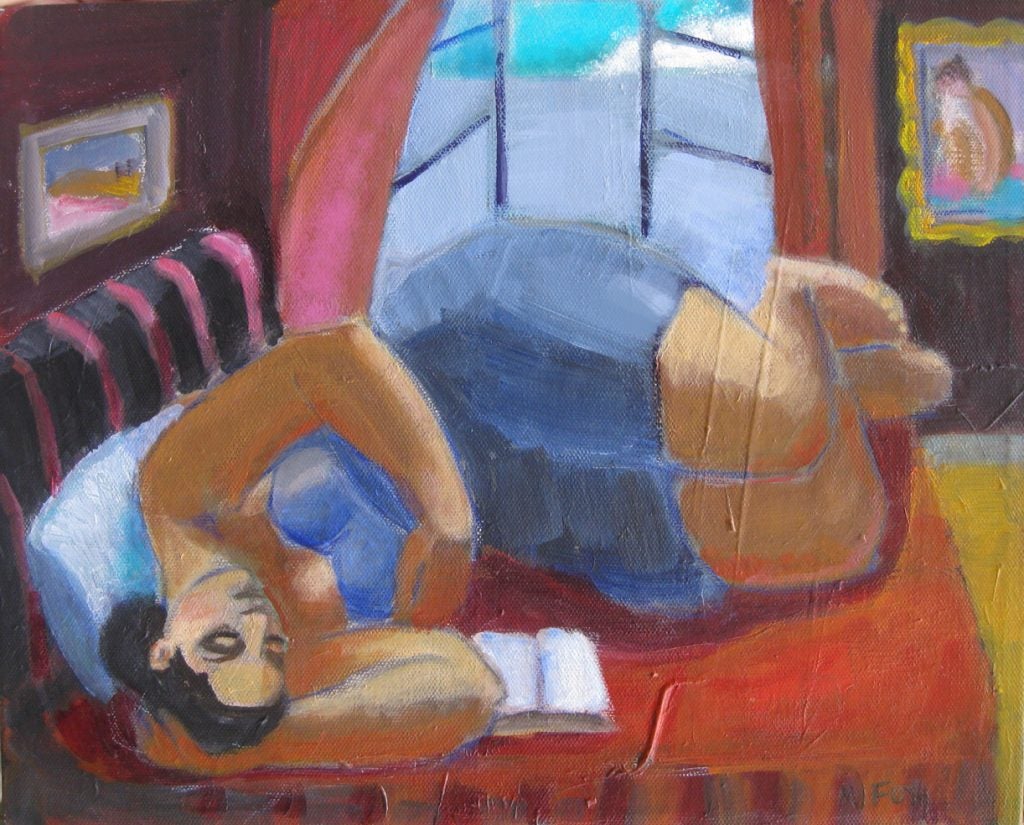I have a confession to make. I love audiobooks. Not as a substitute for “normal” books, but as its own unique medium. Audiobooks get a bad rap. They take longer to get through, are utterly dependent on the strength of the narrator, and can be easy to zone out during. But I’m here to argue that there are some things audiobooks can do better than physical books. Just hear me out!
I can’t pretend that audiobooks won’t put some people straight to sleep … after all, that’s how I came to love them in the first place. I’ve always had trouble sleeping. Even before my memories of sleeplessness started forming, there are accounts of my wakeful nights. My parents remember checking on me in the middle of the night, only to find me wide-eyed, patiently sitting on the carpet, having somehow escaped my crib. Waiting two or three hours a night, every night, for sleep to visit, I decided, sometime in high school, that if my bed was to be a waiting room, I’d better stock it with ways to pass the time.
The obvious solution was to read. Except that for me, opening my eyes was like resetting the clock. A dim reading light was equally and unfortunately restorative. I wished I could be one of those melancholy but romantic figures, slowly paging through a book before falling asleep mid-sentence, my body acting as my bookmark. Instead, I settled for cutting a much more modern figure, one with headphones plugged into her ears. Many audiobooks kept me company during the years before I found better sleep aids, speaking softly to me until my thoughts scrambled into dreams.
Even after I no longer needed audiobooks to sleep, I continued to buy and use them. I was picky, though. It wasn’t enough that I wanted to read the book; the book had to be elevated by the audio. I once read a movie review of a book that had been adapted into a film (full disclosure: it was The Hunger Games), in which the reviewer criticized the movie because it was too much like the book. The argument, as I understood it, was that since film was an entirely separate medium from print, with its own abilities and limitations, a successful adaptation should be less concerned with faithfulness to the original, and more interested in how best to exploit its unique set of strengths. In other words, what can a film do that a book can’t? After nights upon nights of audiobooks, I realized I had created a similar criterion for my listening pleasure. An audiobook, which is meant to be a complete iteration of the physical book, could still provide a completely different experience. Even a better, more complete experience.
Audiobooks obviously rely heavily on voice. And so it is voice that can lift an audiobook well beyond the reaches of the actual book. Voice can be divided into two schools: the school of multiple voices and the school of one, charismatic voice. While the most well known example of the first school is Jim Dale, who read for the Harry Potter series, embodying a wholly unique voice for each character in the series—a number that easily clocks into the hundreds—the major player in my audiobook days was Johanna Parker, who read for the steamy, thrilling Sookie Stackhouse Southern Vampire Mystery series. This series was later adapted into True Blood. Fans of either the books or the TV show will know the difficulty of speaking for this particular cast of characters. Jim Dale might have voiced a crowd of hundreds, but he never had to read a sex scene between a Viking vampire and a Louisiana waitress. Or a sex scene between a Civil War-era vampire and a Louisiana waitress. Or a sex scene between a werewolf and … you the get the picture. With Johanna in my ear, I devoured the entire series. I would recommend listening just to hear her version of a Viking accent, a sibilant, chilly earworm that is as much a guilty pleasure as the books.
The second school, of one voice, I found when I started listening to comedian memoirs. Before audiobooks, I actually went through a period of listening to stand-up comedy to fall asleep, the obvious drawback being that the better the comic, the less effective the sleeping draught. The comedian memoir was the compromise, where the jokes were spliced between long stretches of anecdote. The comedian memoir is truly the best example of when the audiobook is better than the book. Unless you are such a big fan that you’ve got the voice and cadence in your head, the jokes don’t land as well on paper. But piped through my earbuds, I get to revel in the joys of comedic timing, in tonal changes. Tina Fey’s Bossypants, Amy Poehler’s Yes, Please, Sarah Silverman’s The Bedwetter, Michael Ian Black’s You’re Not Doing It Right, and on and on—if the comedian is a good one, his or her audiobook will reign supreme.
No longer should audiobooks be the slow cousin to the physical book. They own their own kingdom, and while their royal subjects might always be the insomniacs, long-haul truck drivers, and road trippers of America, I invite you to take a stroll through the territory anyway. It will be a slower experience, for sure, but a richer one also.
Lead image: Fox, Marie. “Read, Then Dream.” Acrylic on canvas.







